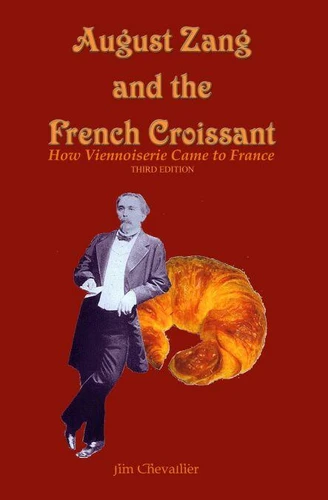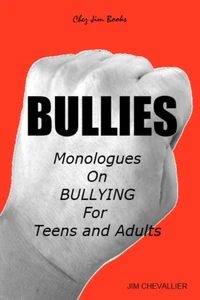August Zang and the French Croissant (Third Edition)
Par :Formats :
Disponible dans votre compte client Decitre ou Furet du Nord dès validation de votre commande. Le format ePub est :
- Compatible avec une lecture sur My Vivlio (smartphone, tablette, ordinateur)
- Compatible avec une lecture sur liseuses Vivlio
- Pour les liseuses autres que Vivlio, vous devez utiliser le logiciel Adobe Digital Edition. Non compatible avec la lecture sur les liseuses Kindle, Remarkable et Sony
 , qui est-ce ?
, qui est-ce ?Notre partenaire de plateforme de lecture numérique où vous retrouverez l'ensemble de vos ebooks gratuitement
Pour en savoir plus sur nos ebooks, consultez notre aide en ligne ici
- FormatePub
- ISBN8227201508
- EAN9798227201508
- Date de parution29/12/2024
- Protection num.pas de protection
- Infos supplémentairesepub
- ÉditeurBig Dog Books, LLC
Résumé
This is the third edition of this book, which tells the story of how August Zang, a nineteenth century Austrian entrepreneur, introduced the croissant to France and then returned to Austria to transform journalism in that countrySoon after this work appeared in 2009, writers on the croissant quickly began to reference August Zang's role in bringing its original to Paris. Not all abandoned old myths; more than one tried to integrate the better-documented version with old myths about the siege of Vienna and Marie-Antoinette.
But overall, the book has had its intended role of establishing Zang's place in French bread history. Other developments have ensued. Two writers in Austria wrote their own book about the Austrian original, crediting an earlier edition of this book for inspiring it. A French newspaper has cited it in (a completely illusory) connection with the chocolatine. Other periodicals have referenced it in various degrees.
At least one student based his doctorate on it. Inevitably too new material has appeared, including substantial new information and a variety of older recipes for the croissant. Rereading earlier prose has suggested some reworking. It seems high time then, fifteen years later, for a third edition. Among the additions here are a more detailed look at Zang's 1842 patent, more about progress toward the modern croissant, a further look at the bakery's history after Zang, and appendices including older recipes for the croissant, period summaries of Zang's life and an attempt to address errors about the history of the pain au chocolat and the chocolatine falsely credited to earlier editions of this work.
But overall, the book has had its intended role of establishing Zang's place in French bread history. Other developments have ensued. Two writers in Austria wrote their own book about the Austrian original, crediting an earlier edition of this book for inspiring it. A French newspaper has cited it in (a completely illusory) connection with the chocolatine. Other periodicals have referenced it in various degrees.
At least one student based his doctorate on it. Inevitably too new material has appeared, including substantial new information and a variety of older recipes for the croissant. Rereading earlier prose has suggested some reworking. It seems high time then, fifteen years later, for a third edition. Among the additions here are a more detailed look at Zang's 1842 patent, more about progress toward the modern croissant, a further look at the bakery's history after Zang, and appendices including older recipes for the croissant, period summaries of Zang's life and an attempt to address errors about the history of the pain au chocolat and the chocolatine falsely credited to earlier editions of this work.
This is the third edition of this book, which tells the story of how August Zang, a nineteenth century Austrian entrepreneur, introduced the croissant to France and then returned to Austria to transform journalism in that countrySoon after this work appeared in 2009, writers on the croissant quickly began to reference August Zang's role in bringing its original to Paris. Not all abandoned old myths; more than one tried to integrate the better-documented version with old myths about the siege of Vienna and Marie-Antoinette.
But overall, the book has had its intended role of establishing Zang's place in French bread history. Other developments have ensued. Two writers in Austria wrote their own book about the Austrian original, crediting an earlier edition of this book for inspiring it. A French newspaper has cited it in (a completely illusory) connection with the chocolatine. Other periodicals have referenced it in various degrees.
At least one student based his doctorate on it. Inevitably too new material has appeared, including substantial new information and a variety of older recipes for the croissant. Rereading earlier prose has suggested some reworking. It seems high time then, fifteen years later, for a third edition. Among the additions here are a more detailed look at Zang's 1842 patent, more about progress toward the modern croissant, a further look at the bakery's history after Zang, and appendices including older recipes for the croissant, period summaries of Zang's life and an attempt to address errors about the history of the pain au chocolat and the chocolatine falsely credited to earlier editions of this work.
But overall, the book has had its intended role of establishing Zang's place in French bread history. Other developments have ensued. Two writers in Austria wrote their own book about the Austrian original, crediting an earlier edition of this book for inspiring it. A French newspaper has cited it in (a completely illusory) connection with the chocolatine. Other periodicals have referenced it in various degrees.
At least one student based his doctorate on it. Inevitably too new material has appeared, including substantial new information and a variety of older recipes for the croissant. Rereading earlier prose has suggested some reworking. It seems high time then, fifteen years later, for a third edition. Among the additions here are a more detailed look at Zang's 1842 patent, more about progress toward the modern croissant, a further look at the bakery's history after Zang, and appendices including older recipes for the croissant, period summaries of Zang's life and an attempt to address errors about the history of the pain au chocolat and the chocolatine falsely credited to earlier editions of this work.





















